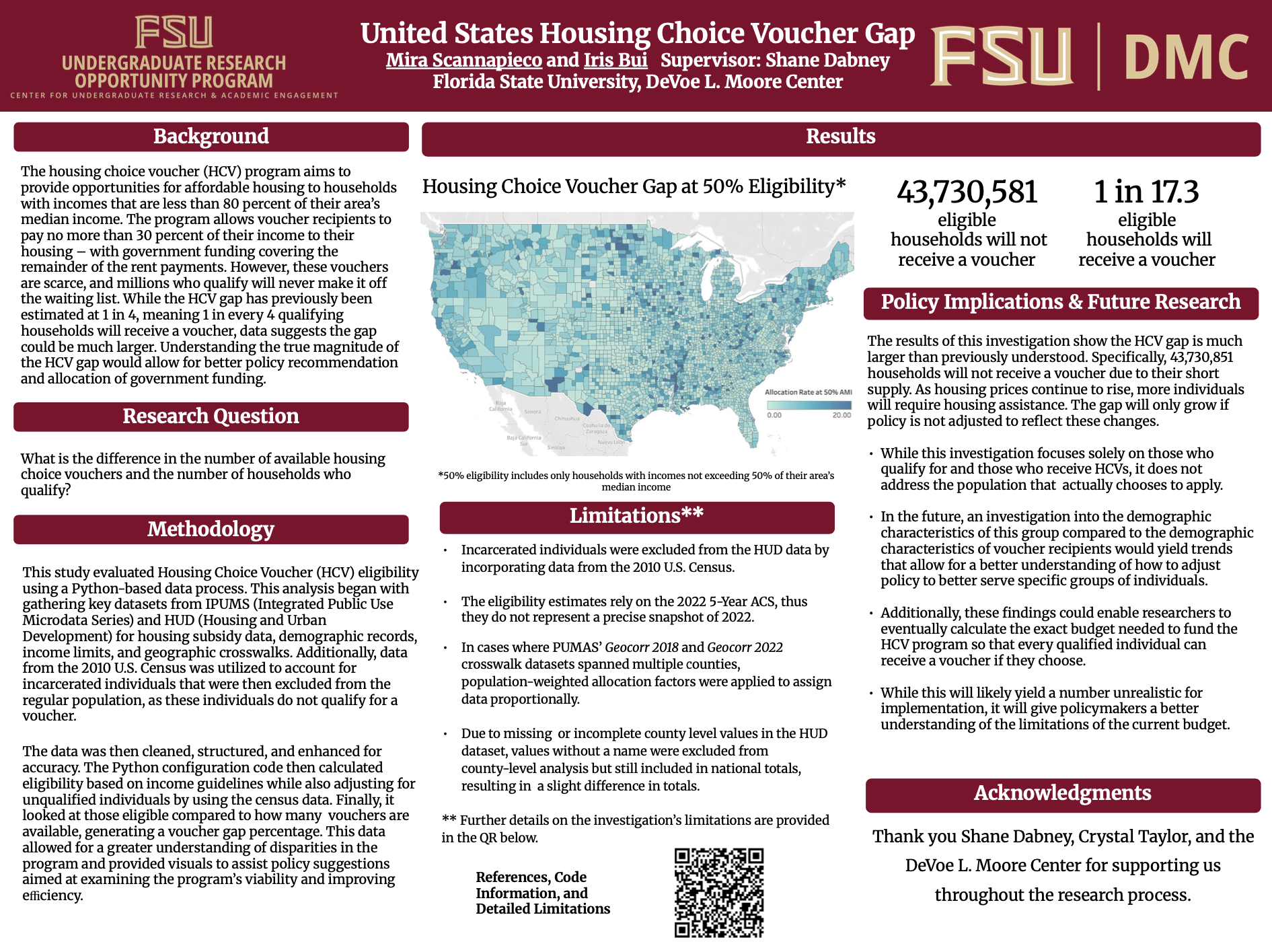Research Symposium
25th annual Undergraduate Research Symposium, April 1, 2025
Mira Scannapieco Poster Session 2: 10:45 am - 11:45 am/ Poster #260
BIO
My name is Mira Scannapieco and I am an Undergraduate Junior majoring in economics. I was born and raised in Nashville, TN and graduated high school with an International Baccalaureate Diploma, sparking my interest for research. I will be graduating from FSU in Fall 2025 and plan to work in economics during the spring before attending law school in Fall 2026. While law has always been my passion, I have fallen in love with economics, and hope to have the opportunity to continue this interest beyond my undergraduate years, potentially furthering my research in economics and public policy.
United States Housing Choice Voucher Gap
Authors: Mira Scannapieco, Shane DabneyStudent Major: Economics
Mentor: Shane Dabney
Mentor's Department: Department of Philosophy Mentor's College: College of Arts and Sciences Co-Presenters: Iris Bui
Abstract
The Housing Choice Voucher (HCV) program is a government funded program designed to assist low-income families in affording safe and decent housing in the private market. However, despite many qualifying individuals, only a small number of people receive vouchers. The difference in the number of available housing choice vouchers and the number of households who qualify for these vouchers has previously been believed to be one in four, meaning one in four qualifying households will receive a voucher. Using data collected from the Housing and Urban Development (HUD) database, which provides data on previous HCV recipients, as well as US Census data, this investigation has been able to estimate the number of qualified households more accurately and, as a result, more accurately estimate the HCV gap. Using a Python code, trends both within states and across different regions have been identified, allowing for a better understanding of the distribution of HCVs across the United States. We plan to take these findings and further our research, analyzing the demographic breakdown of qualifying households and voucher recipients as well as eventually integrate the number and demographic characteristics of the households applying for the HCV program to fully understand this gap, its causes, and its potential implications for low-income families.
Keywords: Housing Affordability, Public Policy, Economics, Government, Python


